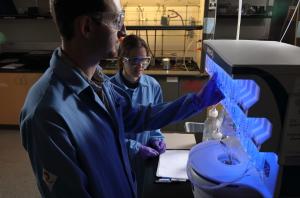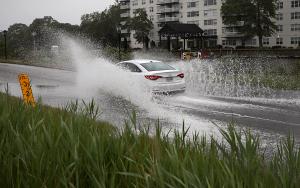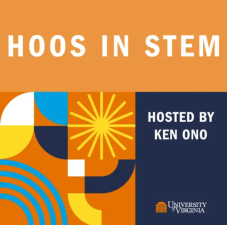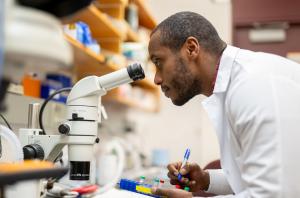News
UVA Engineering's faculty and students work to improve human health and create a sustainable and secure future.
-

UVA Team Aims To Design Long-Lived Peptides for More Powerful Medicines
Read NowResearchers are trying to overcome the ephemeral nature of peptides, which might otherwise be powerful medicine. A UVA team has found one approach.
-

Advancement in 3D-Printed Concrete Promises Strength, Durability and Lower Carbon Emissions
Read NowUVA researchers have created a graphene-enhanced, 3D-printable concrete that improves strength and reduces carbon emissions by 31%, advancing sustainable construction.
-

UVA Engineering Professor Secures Federal Small Business Grant to Improve Heat Management in Advanced Microelectronics
Read NowPatrick E. Hopkins received funding to develop a tool that can precisely measure how heat moves through small electronics.
-

New AI Model Could Make Power Grids More Reliable Amid Rising Renewable Energy Use
Read NowUVA researchers use AI to manage the growing complexity of modern power grids.
-

Climate Change Threatens Bridges and Roads
Read NowUVA engineers find climate change will intensify rainfall, putting pressure on waterways and threatening bridges, roads and culverts. Their models offer solutions for infrastructure adaptation.
-

Kory Burns Leads AI-Enhanced Breakthrough That Illuminates Materials Reactions at Nanoscale
Read NowThe researchers' new approach uses machine learning to identify defects that would otherwise go unspotted by human review of micrograph images.
-

Predicting Norfolk Street Flooding in Seconds: UVA Professor Jon Goodall's Machine Learning Advancements
Read NowAI-powered models offer faster, real-time flood forecasts for Hampton Roads.
-

UVA Researchers Develop New Coatings To Boost Turbine Engine Efficiency
Read NowA multidisciplinary UVA-led research group has formulated new protective coatings to allow turbine engines to run hotter — with potential dividends for the environment and people.
-

Podcast: The Wide World of Electrical and Computer Engineering with Scott Acton
Read NowElectrical and computer engineering was central to three defining technologies — personal computers, the internet and AI — ECE chair Scott Acton told Ken Ono. The field isn’t done changing history.
-

UVA Professor Tackles Graph Mining Challenges with New Algorithm
Read NowNikolaos Sidiropoulos has helped create a powerful new algorithm that uncovers hidden patterns in complex networks, with potential uses in fraud detection, biology and knowledge discovery.
-

Bridging the Gap: Evolving Project Management for Modern Transportation
Read NowOpinion: Changes in transportation project management are key to building a resilient workforce and sustainable infrastructure.
-

UVA Faculty Uncover the Key to Preventing Fibrosis in Biomaterial Implants
Read NowResearchers in the UVA Department of Biomedical Engineering have discovered a type of fibroblast cells that appear to drive a deadly disease progression.